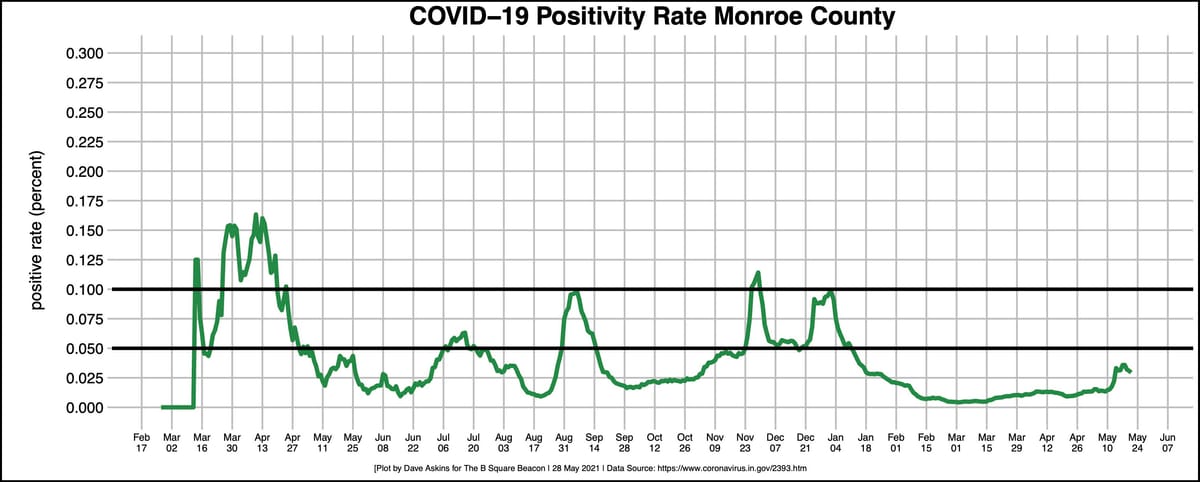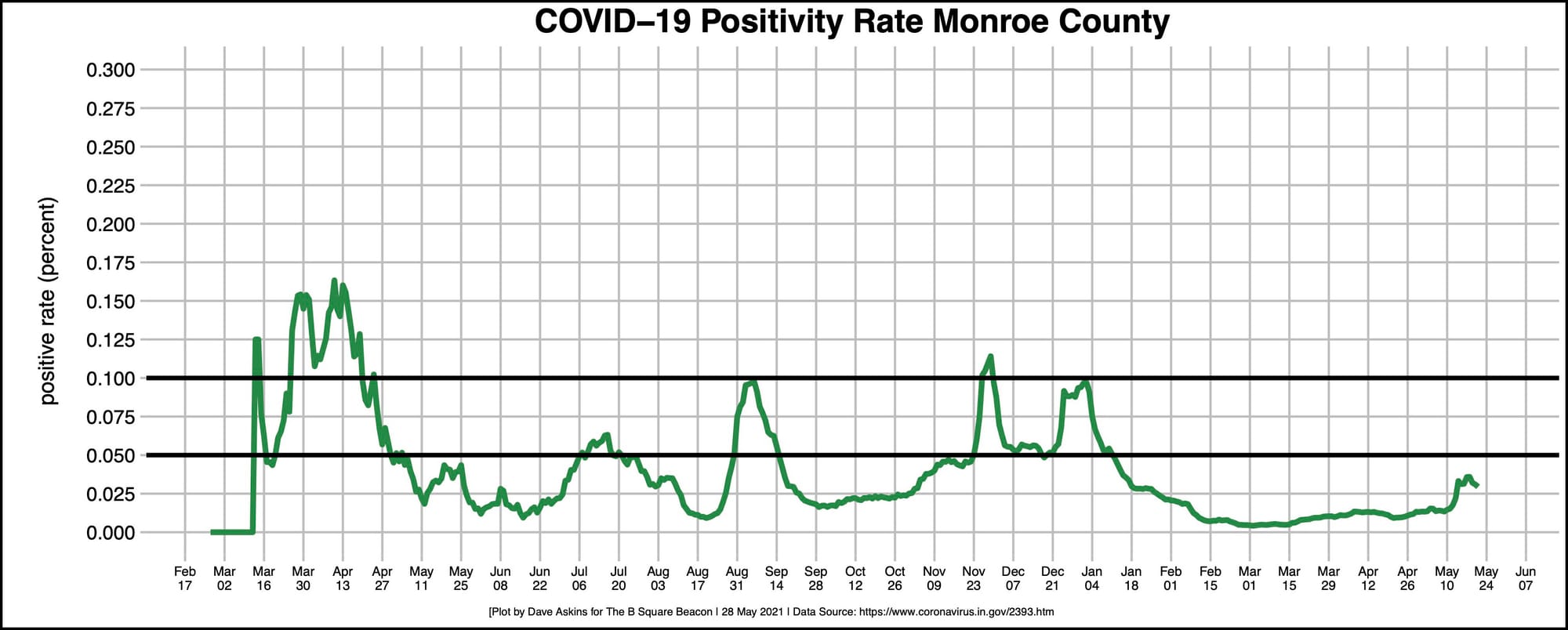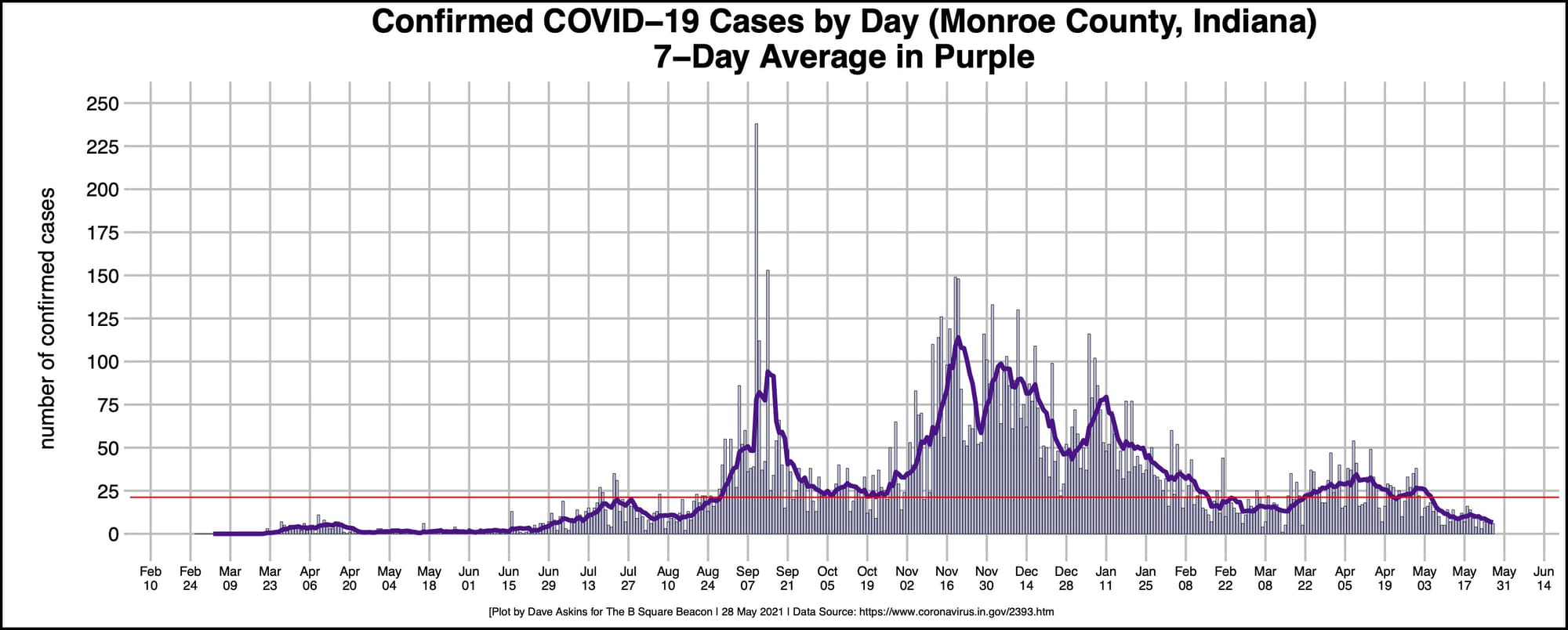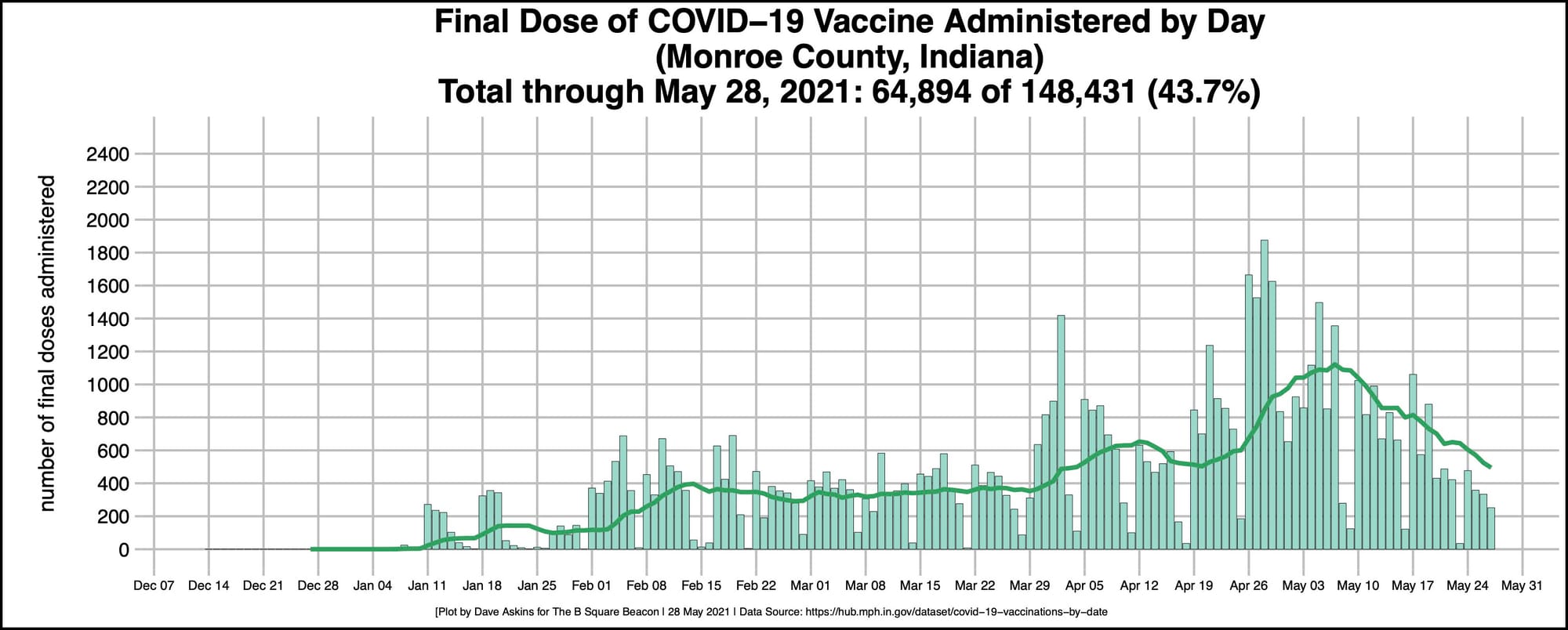IU to “stay the course” on vaccine requirement for fall, points to $10M savings compared to mitigation testing




Indiana University “certainly made the papers this week.”
That was a remark from IU’s media relations director Chuck Carney, as he turned over the mic to the university’s vice president for strategic partnerships, Kirk White, during Friday’s weekly press conference with local leaders on pandemic response.
But White led off his turn with some news that might not have made the papers—the latest dose numbers at the Simon Skjodt Assembly Hall COVID-19 vaccination clinic.
Since late March, 35,600 doses have been administered, White said. Plenty of appointment slots are available next week, which can be scheduled at the state’s online registration site, White said.
Some of the news that put IU in the papers was the letter that several state legislators sent to Indiana governor Eric Holcomb. The state lawmakers object to the university’s decision, announced last Friday, to require vaccinations for students, faculty and university staff with the start of the fall 2021 semester.
Also putting IU in the news this past week was an opinion issued on Wednesday by Indiana’s attorney general Todd Rokita. The opinion says IU’s approach to its policy requiring a COVID-19 vaccination violates a new law passed by the state legislature this year.
The new law says neither the state nor local units can require an “immunization passport.” [HEA 1405] From Rokita’s opinion: “Indiana University’s policy…unquestionably violates the new law.”
The opinion continues: “IU explicitly states in its announcement and on its FAQ page 1 that all students, faculty, and staff must use a specific COVID-19 vaccination reporting form and provide proof of vaccination in the form of an upload or scan of their vaccination card.”
But Rokita’s opinion does provide a kind of saving grace for IU. The opinion states: “HEA 1405 only prohibits public universities from requiring proof of the COVID-19 vaccine; it does not prohibit them from requiring the vaccination itself.”
On Friday, White picked up that point of the opinion. “Even though the attorney general said that he had some concerns, he did not say that requiring a vaccine was illegal. But how we might collect the data, it might be illegal,” White said.
White said the university is taking the concerns raised by the attorney general and state lawmakers seriously. “Of course, we respect these different opinions from around the state of Indiana. We were part of Indiana. And we understand those differing views.”
Based on White’s remarks on Friday, IU will not be altering its basic policy requiring COVID-19 vaccinations for the fall semester. “I don’t think there will be much tweaking yet to be done. We are still looking at a few points that have been raised. But I think we’re going to stay the course on this.”
The opinion from Rokita was requested by state representative Peggy Mayfield, who represents part of Monroe County, and state senator Andy Zay.
Last week, White responded to a question from The Square Beacon about IU’s vaccine requirement and HEA 1405. White wrote in an email that Indiana University’s vaccine mandate is consistent with the recent state law enacted by the state legislature, which says “the state or a local unit” can’t require an “immunization passport.” [HEA 1405]
“By requiring the vaccine for all of the IU community we believe that we will achieve a level of safety that does not require such a ‘passport’,” White said.
White added, “Our view is that state law in Indiana already requires that all public university students must be vaccinated against diphtheria, tetanus, measles, mumps, rubella, and meningitis, and allows universities to require other vaccines as deemed necessary.”
The existing requirement of vaccinations against other diseases was a point also raised at Friday’s news conference.
On Friday, White also pointed to a cost savings for the vaccination requirement. By imposing a vaccination requirement, the university will not be undertaking the massive amounts of mitigation testing that it did last fall and through this spring, to identify outbreaks so that it could respond appropriately.
White said, “We estimate that by not having to do all the mitigation testing, if we didn’t have a requirement for vaccination, we’ll save over $10 million in testing fees this next year.” White added, “That’s a lot of money that we can return back to the university’s research, teaching and service missions.”
White reported that the university’s administration had received inquiries from people on both sides of the vaccination question: “Really, we’ve had some people say it is a relief: I’m glad you’re making this requirement, because I’ll feel safer in the fall. We’ve had others who will say: Well, I’m not completely comfortable with this, let me see about this exemption process.”
Bloomington’s mayor John Hamilton said during his remarks at Friday’s press conference about IU’s vaccine requirement: “Indiana University has taken a very, very significant step to make our community safer by making their community safer. It is an extremely beneficial and appropriate decision. And I want to thank IU again for taking that step.”
Friday’s state dashboard numbers for COVID-19 infections showed a continuing decreasing trend for positive COVID-19 cases in Monroe County.
Friday’s dashboard report of 6 cases for May 27, made for the eighth consecutive day of single-digit case numbers for Monroe County. The 7-day rolling average of positive cases now stands at 6.5 cases per day.
Monroe County’s rolling average 7-day positivity rate has settled in at around 3 percent after spiking from 1.5 percent to 3.5 percent in the space of a couple days. That lines up with dramatically diminished numbers of mitigation tests by Indiana University after the end of the spring semester.
Mitigation tests, conducted on randomly selected people, not because they have some reason to seek a test, will by their nature show a higher positivity rate.




Comments ()